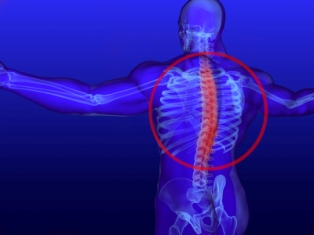News
You don't need to live with low back pain!

Statistics tells us that about 80% of you have had or will have an episode of low back pain. Hopefully, you are one of those individuals in which your back pain was not severe and resolved quickly. There are a few key facts that you should know if you or someone you know is experiencing low back pain. Lets start with the Good News! Most low back resolves over the course of several days with minimal intervention. Sound research has shown that staying active and moving is the best first line treatment for an episode of low back pain. Just by walking and avoiding long periods of sitting you can improve your symptoms.
However, what if your low back pain persists or reoccurs and you are now seeking advice from a medical professional? This is where it is very important that you know what the last 3 decades of medical research tells us about managing your low back pain.
The first thing you should expect from your physician or therapist is a thorough history and physical examination. Following a thorough examination, you can confidently know if your back pain is due to something more serious such as a tumor or infection, a very, very small percentage of all low back pain. It is extremely important that you should not expect nor request additional testing unless there is a clear rationale for this. The vast majority of patients with low back pain do not need x-rays and an even smaller percentage of low back pain sufferers require advanced imaging such as MRI. In fact, a recent large scale examination of the current medical science shows that routine lumbar imaging (X-rays, MRI, or CT) for low back pain actually resulted in less favorable results. Though it seems counter-intuitive when it comes to low back pain management more imaging is not better. In actuality, routine imaging for low back pain leads to greater rates of surgery and resultant complications and actually worse outcomes than if you didn't have the imaging study.
What type of treatment should you expect for low back pain that doesn't resolve with self-treatment?
- Medication. Research suggests there is a small, short-term benefit from the use of non-steroidal anti-inflammatory drugs. However, prolonged use of these drugs is associated with numerous side effects and the likelihood of experiencing another episode of low back pain is high.
- An Active Physical Therapy Program. Your physical therapist should implement a treatment program that consists of 2 phases, treating the current symptoms and preventing a subsequent episode. Treating the current symptoms starts with a combination of hands-on care that typically includes spinal manipulation and a progressive mobility exercise program designed to decrease pain. The second phase should treat the underlying cause of the low back pain and focuses on targeted flexibility and strengthening exercises of key muscles of the trunk and legs. Research has shown that the muscles of the lower abdominal wall and deep back muscles become weakened after an episode of low back pain and are the culprits in recurrent episodes of low back pain. You can typically get the back muscles activated by precise exercise instruction but occasionally stimulating the muscles using a technique called trigger point dry needling is used to improve muscle performance.
If you are having an acute episode of low back pain, the message is to keep moving and if your symptoms persist there are options to get you back doing what you love.
Disclaimer:
The information in the articles, posts, and newsfeed is intended for informational and educational purposes only and in no way should be taken to be the provision or practice of physical therapy, medical, or professional healthcare advice or services. The information should not be considered complete or exhaustive and should not be used for diagnostic or treatment purposes without first consulting with your physical therapist, occupational therapist, physician or other healthcare provider. The owners of this website accept no responsibility for the misuse of information contained within this website.

